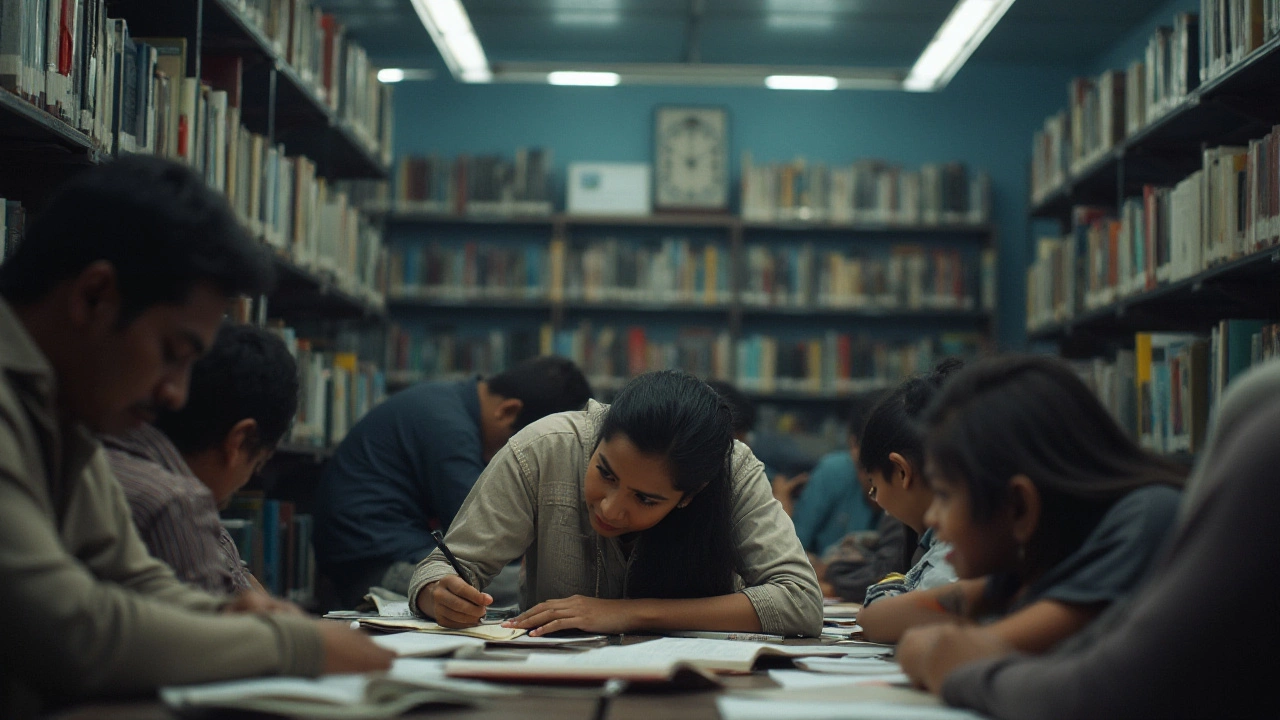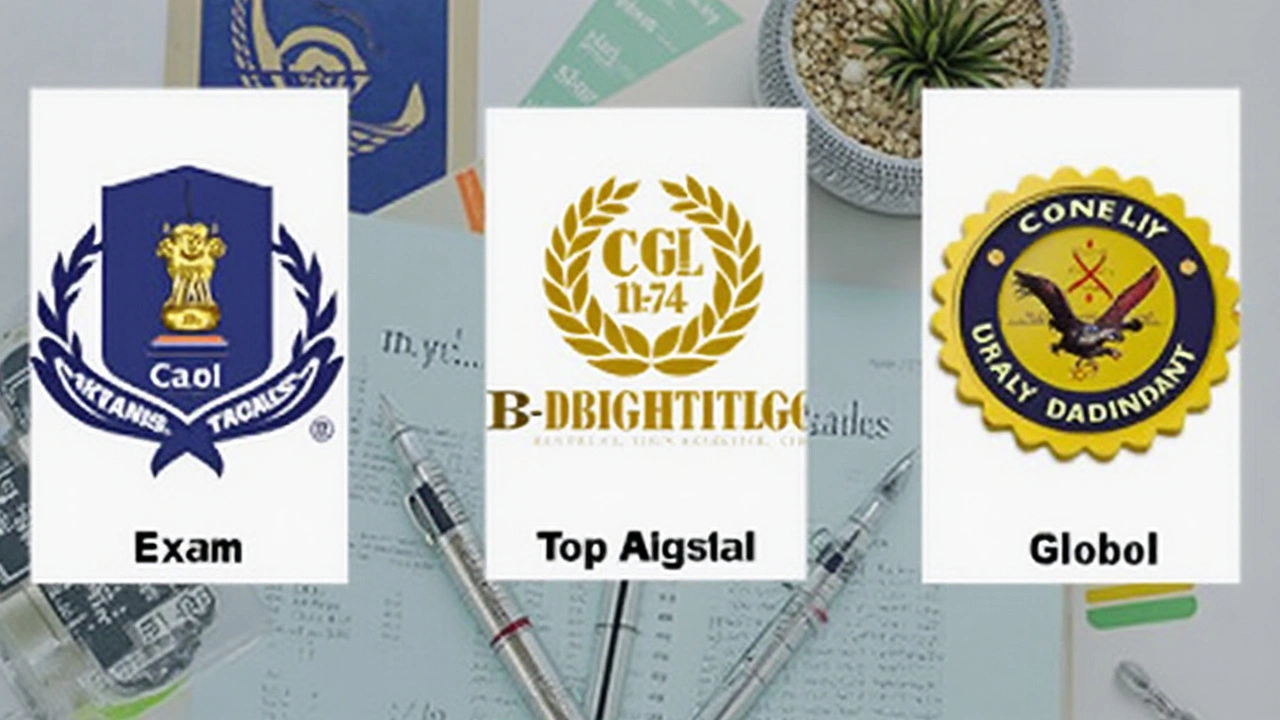
Competitive exams are designed to measure candidates' abilities beyond conventional academic settings, often serving as gateways to prestigious careers and educational opportunities. Around the globe, students and professionals face a range of tests that challenge them mentally, emotionally, and sometimes even physically. These exams not only demand vast knowledge and problem-solving skills but also resilience and the ability to perform under immense pressure. Among these tests, a few stand out due to their intimidating difficulty and high stakes.
In this article, we explore three of the toughest competitive exams across different fields and regions, shedding light on what makes them so demanding. Whether you're a curious reader or an aspiring candidate, understanding these tests will offer insights into the world of high-stakes assessments and preparation. We also provide tips for those attempting to conquer these formidable challenges, aiming to make the seemingly impossible, possible.
- Introduction to Competitive Exams
- Gaokao: The Chinese Giant
- UPSC Civil Services Exam: The Indian Challenge
- CFA Exam: The Global Financial Test
- Tips for Tackling Tough Exams
Introduction to Competitive Exams
The world of competitive exams is vast and varied, encompassing a range of subjects and skill sets. These exams serve as a battleground where individuals display not only their knowledge but also their resolve and endurance. From high school students aiming for college seats to professionals striving for financial certifications, competitive exams play a pivotal role in shaping futures. They often demand a blend of cognitive abilities, time management, and emotional stamina.
One fascinating aspect of these exams is their sheer diversity. They can be subject-specific, like the SAT for college admissions in the United States, or career-oriented, such as the GMAT for business schools worldwide. Some exams, like the LSAT for law schools, are even designed to assess abstract thinking and analytical skills. Each of these exams throws unique challenges at its candidates, making preparation an intense and multifaceted endeavor.
Competitive exams are not merely academic exercises; they are gateways to opportunities. For instance, the Gaokao in China, often called the most grueling examination globally, determines students' higher education paths and, by extension, their future careers. This exam exemplifies how a single test can impact an entire workforce's landscape in a country. Similarly, the UPSC Civil Services Exam in India is another example where thousands put a year of rigorous preparation at stake to secure government positions.
In an insightful remark about the nature of these exams,
"These tests are as much about mental endurance as they are about academic prowess,"said Dr. Maria Gonzales, an education expert specializing in standardized testing. Her words highlight the multifaceted nature of what makes exams challenging beyond the surface-level subject difficulty. Success often lies in the strategy, the dedication to exhaustive preparation and the psychological readiness to face a high-pressure environment.
Gaokao: The Chinese Giant
The Gaokao, or the National College Entrance Examination, is synonymous with academic perseverance in China, acting as a pivotal turning point for millions of high school students each year. Known for its extreme difficulty and stress-inducing pressure, the Gaokao stretches over two or three grueling days, depending on the region. This monumental examination dictates the college admissions process, influencing not only students' futures but often the socioeconomic trajectory of entire families. With this test, Chinese students prepare to showcase their mastery of various subjects, from physics and chemistry to literature and math.
The exam's significance cannot be overstated, given that the Gaokao determines access to universities, including those that rank as some of the best in China and the world. As a result, students dedicate years to rigorous study, often beginning their preparation in earnest during the early years of high school. The stakes are incredibly high, as the competition is fierce. For those vying for a spot in top-tier institutions like Tsinghua University or Peking University, the exam is nothing short of a formidable challenge.
According to recent data, approximately 10 million students sit for the Gaokao each year, with only a fraction securing spots in their preferred schools. The competition's intensity often leads to a culture of relentless study known colloquially as 'Kowtow,' where students and teachers alike work tirelessly to maximize performance. The exam itself covers a broad curriculum; students must typically take mandatory tests in mathematics, Chinese literature, and a foreign language, often English. They also choose between humanities or sciences for their additional subjects.
One interesting aspect of the Gaokao is its changing nature. The exam's format and content periodically undergo revisions to align with educational reforms and evolving societal needs. For instance, the recent reforms have introduced more emphasis on critical thinking skills and real-world applications, moving slightly away from rote memorization. These changes have sparked debates among educators and policymakers, touching upon traditional versus modern educational philosophies. A renowned Chinese professor once stated,
The Gaokao is not just a test; it is a barometer reflecting our society's values and priorities.
The stress associated with the Gaokao has cultural roots, dating back centuries to the imperial examination system, which inspired its creation. Families often place immense pressure on students to perform well, leading to high levels of stress and exhaustion. Despite the pressure, many students see the Gaokao as an opportunity. For those from smaller towns and rural areas, it can be a means of accessing elite education and opening doors to opportunities that might otherwise remain closed. In preparation, many students attend weekend classes, summer boot camps, and engaging tutors, all to gain a competitive edge.
Given its prestige and impact on future career paths, the Gaokao remains one of the toughest exams globally. Yet, its impact extends beyond the education sector, influencing social equity and mobility challenges in China. With such profound implications, its role in shaping students' lives is monumental. Yet, it also raises important questions about the balance between ambition and wellbeing, and how best to foster a healthy, supportive learning environment for the next generation of scholars.

UPSC Civil Services Exam: The Indian Challenge
The UPSC Civil Services Exam, held annually in India, is a gateway to the country's most prestigious government positions. It's considered one of the toughest exams globally, primarily due to its vast syllabus and the intense competition it cultivates. Every year, hundreds of thousands of candidates register for this exam, yet only a few thousand make it through. This examination, conducted by the Union Public Service Commission, assesses candidates aspiring to serve in various administrative roles, including the Indian Administrative Service (IAS), Indian Police Service (IPS), and Indian Foreign Service (IFS).
The exam is divided into three exhaustive stages: the Preliminary Examination, the Main Examination, and the Personality Test. The preliminary stage is an objective-type test, while the main examination consists of descriptive papers. Finally, the daunting interview stage evaluates the candidates’ personality and observational skills under stress. Each stage demands a unique set of skills and preparation strategies, making the process an all-encompassing challenge. The vast syllabus includes a range of subjects from history, geography, and science to current affairs, making thorough and disciplined preparation a top priority for success.
"Those who clear the UPSC exams are truly nation builders," said a former UPSC chairperson, highlighting the exam's significance and the dedication required to clear it.
The success rate for UPSC is incredibly low, often around 0.1% to 0.3%, underscoring the strenuous competition. Despite this, the number of applicants is steadily increasing every year, driven by the allure of a powerful government position that offers a chance to impact millions of lives. Aspiring candidates often prepare for several years, dedicating countless hours to studying and revising important concepts. Many rely on coaching institutes that specialize in UPSC preparation, though self-study is also a popular approach among toppers.
For those aspiring to crack this challenging endeavor, perseverance, and consistent hard work are key. Developing a structured study plan can significantly enhance one's chances of success. Many successful candidates swear by the advantages of starting early, regularly revisiting the basics, and keeping abreast of current happenings both in India and worldwide. Experts advise, investing ample time in understanding topics rather than rote learning, which enhances not just knowledge retention but also application, a critical skill assessed in this exam.
CFA Exam: The Global Financial Test
The Chartered Financial Analyst (CFA) exam is widely recognized as one of the most demanding and respected exams in the financial industry worldwide. This test is designed for professionals who aim to advance their careers in investment management and financial analysis. With a rigorous curriculum and a challenging format, the CFA program is structured into three levels, each honing a candidate's knowledge in areas such as ethical and professional standards, investment tools, asset classes, and portfolio management. Each level demands a deep understanding of complex financial concepts, making the CFA exam not just a test of knowledge, but of endurance and resilience too.
Registration fees and study materials contribute to the investment, but more daunting is the time commitment required. On average, candidates report dedicating over 300 hours of study per level. The essays and multiple-choice questions assess the ability to integrate and apply a broad range of financial principles. The pass rate, typically below 50% for each level, underscores the challenging tests nature of the exam. It’s not just about intellect but also about dedication and strategic study planning, as candidates need to allocate sufficient time to each topic area as per their strong suit or struggle zones.
The CFA Institute, which administers the exam, suggests a structured approach: start at least six months in advance, comprehend each study session thoroughly, and leverage mock exams to gauge preparedness. This intensive process aims to develop a candidate's analytical skills and practical knowledge necessary for professional success.
Warren Buffet once highlighted the value of committed practice by saying, "The best investment you can make is in yourself."Successful completion of all three levels not only enhances career opportunities but also grants membership to a global network of top-tier financial analysts, opening doors to senior positions in banking, investment firms, and consultancy.
Each CFA level builds upon the knowledge of the previous one. The journey kicks off with Level I, emphasizing investment tools, broad concepts, and introductory analysis. As candidates progress to Level II, the focus shifts more towards asset valuation and practical applications of the learned concepts. By the time candidates reach Level III, they are expected to master portfolio management techniques and complex decision-making processes. Employers across the globe value the CFA designation as a marker of excellence and commitment in finance, and holding it is often seen as a testament to the individual’s ability to meet worldwide financial standards.
For those considering taking the CFA exam, preparation is crucial. Consider enrolling in CFA-specific preparatory courses, which can guide candidates about strategic study plans and provide access to vast resource libraries. Additionally, forming or joining a study group could prove beneficial, fostering a collaborative learning environment where doubts are discussed, and concepts are clarified. As the exam takes grueling perseverance to crack, maintaining a balanced schedule that includes relaxation and recreation is equally essential to enhance learning outcomes. The journey to earning the CFA charter is indeed tough, but for those with a passion for finance, it is a rewarding challenge.

Tips for Tackling Tough Exams
Embarking on the journey to conquer some of the toughest exams in the world requires more than just a good study plan. It's about a strategic approach where time management, mental fortitude, and understanding the exam's nuances play significant roles. Begin by familiarizing yourself with the exam structure. Understanding what types of questions are asked and the weighting of each section can guide your study priorities. Prioritize topics that carry more weight or those you find challenging. Creating a realistic study schedule that allows ample time for revision is key. Divide your study materials into manageable portions, ensuring that you cover all bases without burning out. Regular breaks are essential to maintain concentration levels, a strategy backed by neurocognitive research.
Preparation isn't just about the books; mental readiness is just as crucial for competitive exams. Stress and anxiety are common but manageable with proper techniques. Engage in mindfulness practices or meditation to keep anxiety at bay. Physical exercise, even a short daily walk, can enhance cognitive function and reduce stress levels. Healthy eating also plays a part – fuel your brain with nutrients rather than caffeine and sugar. Practicing past papers and simulating exam conditions can also aid in acclimatizing to the test environment. Make use of online resources and forums dedicated to the exam you are preparing for – these communities can offer invaluable insights and support.
Remember, some of these daunting tests are designed to filter out all but the most prepared. As the renowned psychologist Angela Duckworth notes in her book,
“Our potential is one thing. What we do with it is quite another.”Use this mindset to foster resilience and perseverance. Mistakes during practice are not failures but learning opportunities, offering insights into your current understanding and highlighting areas needing improvement. Build a supportive network of peers or mentors. They can offer new perspectives, collaborative work opportunities, and motivation when your spirits flag. Often, discussing topics out loud can bolster retention and comprehension of complex concepts.
A more targeted personal strategy involves identifying and applying productive learning techniques. The Pomodoro Technique, for instance, breaks study into intervals, traditionally 25 minutes, separated by short breaks. Research indicates that spaced repetition – reviewing material at gradually increasing intervals – enhances long-term retention. Additionally, consider employing mnemonic devices or storytelling to memorize challenging concepts. Tailor these strategies to fit personal learning styles and preferences. Remember to balance technical with theoretical understanding; sometimes, the ability to link ideas effectively gains more credit than rote memorization in challenging tests.
Lastly, ensure you are mentally and physically rested before the exam day. Arrive early to the examination location to avoid unnecessary stress. During the test, manage your time efficiently, starting with the questions you feel most confident about to build momentum. If stuck, move on and return later if time permits. Finally, after the exam, take time to unwind and analyze your performance objectively. This reflection phase can be instrumental in tweaking strategies for future assessments, ensuring that each test-taking experience builds towards mastery.
